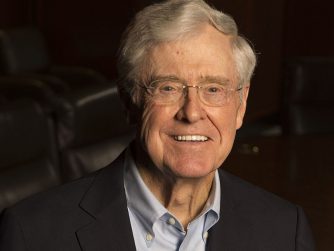From the foundation of the world, God had a plan in place to see that we could journey back to that wholeness that humanity found in the Garden. Christianity calls this the Gospel. Embracing the gospel¢â‚¬”the person and message of Jesus¢â‚¬”allows for the journey towards wholeness. If sin has produced brokenness in our lives, the restoration that occurs from embracing the totality of the Gospel would enable a journey towards wholeness, towards the Garden where God met every need, our relationship with God was in perfect order and sin would no longer impact our lives.
Unfortunately, some people today preach an overly simplistic gospel: Jesus died for the sins of humanity, and if we place our faith and trust in Christ, we get to stay out of hell and live in heaven when we die.[i] However, the gospel is bigger than that. It transforms the whole life, not just one aspect. The word for salvation in the New Testament, sodzo, which is associated with the gospel, is the same word for healing – total physical, emotional and spiritual healing. It other words¢â‚¬¦wholeness.[ii] The Gospel is more about experiencing a sense of God¢â‚¬â„¢s shalom ¢â‚¬“ wholeness and wellness[iii] – than escaping the clutches of hell. The gospel also announces a life lived under the reign of God as depicted in Isaiah.[iv] Thus, our desire to be God will no longer be necessary.
Entrance into this reign depends upon repentance. Repentance is not simply a call for people to feel sorry about their actions. In the Bible, repentance was a call for ¢â‚¬Å“Israel to prepare for the end of her exile as a nation and to change agendas, specifically in the way she was not being the nation that God intended her to be. It was a call to re-engage with God¢â‚¬â„¢s original purpose for Israel.¢â‚¬[v] The nation of Israel had lost its identity, and it was time for the nation to re-orient and re-align its life around God and to be a blessing to the whole world.[vi] For individuals, repentance is a call to a person to rediscover his or her identity as being created in the image of God, re-orienting his or her life around God, and beginning the process of restoration through a personal relationship with God and others who have responded to the covenant love of God.
The gospel, therefore, is places us into‚ the transformative relationship which is Jesus. Jesus is the one relationship that enables us to become the people we were created to be. In embracing Christ, we embark on a journey out of brokenness and into wholeness that will only be complete as God works to restore all of creation.[vii] The working out of the relationship with Jesus in our life, then, is a process where God seeks to re-shape and re-form us into our original identity, and to re-fill us with His original purpose of relationship with God.[viii]‚ It also is a process where our relationships are Christ-differentiated[ix] ¢â‚¬“ where we are not manipulated or controlled by others, but where we live in peace with others out of an understanding of who we are in Christ.
NOTES:
[i] See any number of Gospel presentations such as ¢â‚¬Å“The Roman¢â‚¬â„¢s Road,¢â‚¬ ¢â‚¬Å“Evangelism Explosion¢â‚¬ and ¢â‚¬Å“Continuous Witness Training.¢â‚¬ [ii] Martoia, 200. [iii] Ibid., 221 [iv] Ibid., 36. [v] Ibid., 61-62. [vi] Ibid., 62. [vii] Sherlock, 50. [viii] Bonhoffer, in Creation and Fall states, ¢â‚¬Å“The prohibition [against the tree of the knowledge of good and evil] means nothing other than this: Adam, you are who you are because of me, your Creator; so now be what you are. (85)¢â‚¬ From this, I deduce that finding our identity places us back into the Garden, though a metaphorical garden. [ix] This is a term I am deriving from an integration of ¢â‚¬Å“in Christ¢â‚¬ and Murray Bowen¢â‚¬â„¢s concept of self-differentiation. See Michael E. Kerr and Murray Bowen, Family Evaluation: The Role of the Family as an Emotional Unit That Governs Individual Behavior and Development, (New York: W. W. Norton & Company, 1988), 68.





New @ Integrating Missionally: The Gospel: God’s solution http://bit.ly/8Vsi5
The Gospel: God’s solution – Integrating Missionally http://bit.ly/3UqzlT
The Gospel: God’s solution – Integrating Missionally http://bit.ly/30nBzu
The Gospel: God’s solution – Integrating Missionally http://tinyurl.com/l5fya7